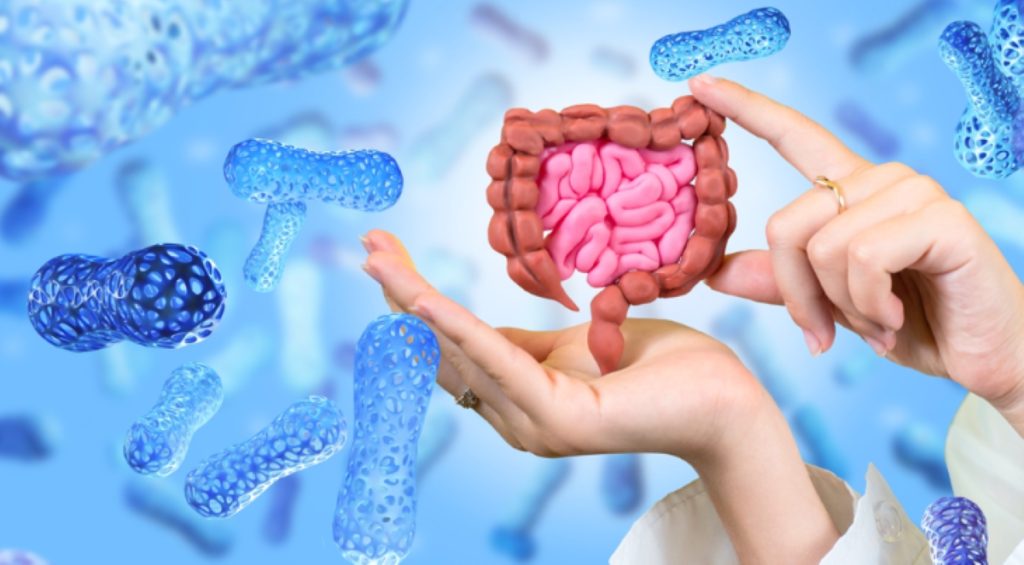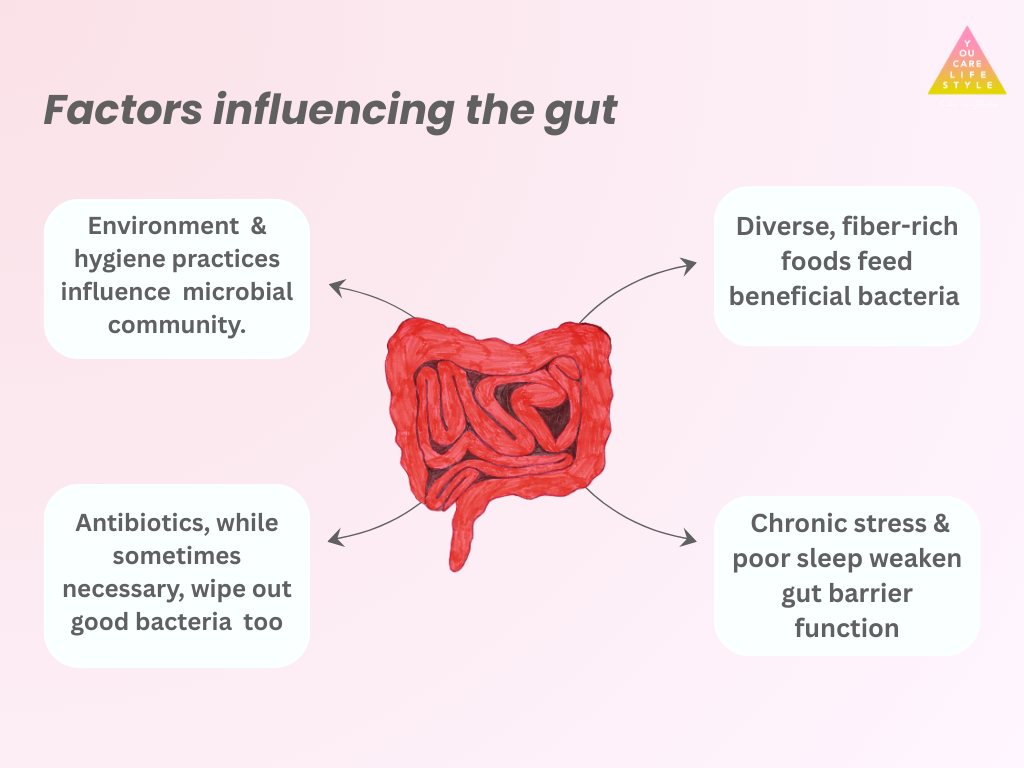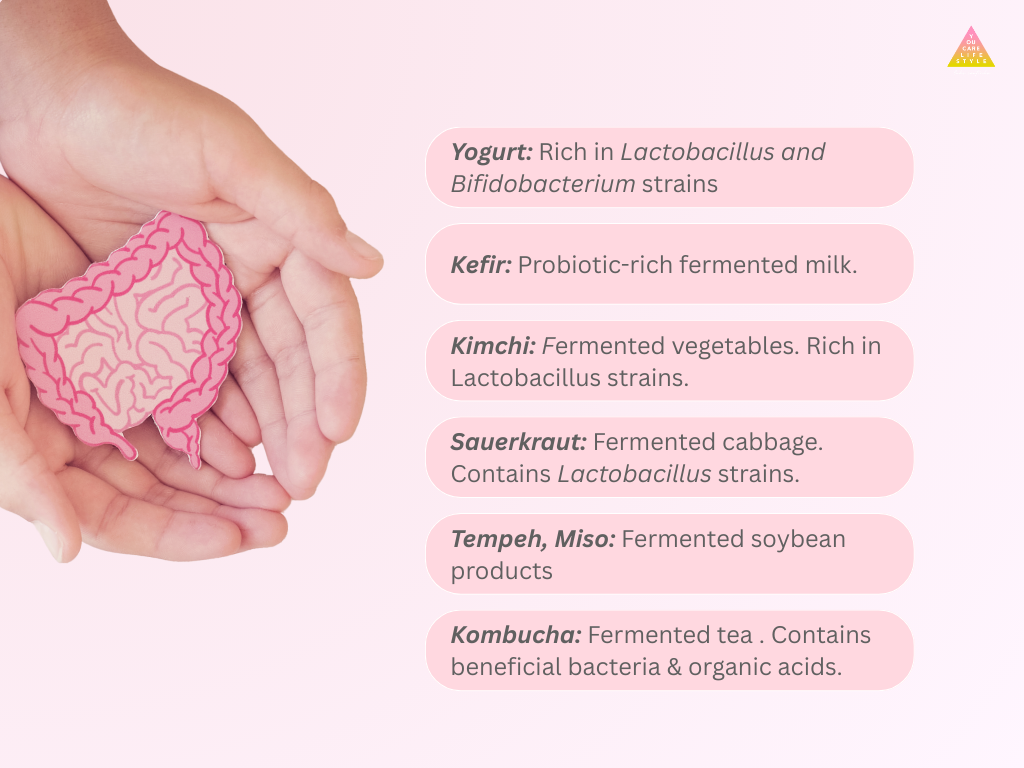The Gut Feeling That Matters The Most

Welcome to your inner ecosystem!
Inside your body lives a community of trillions of microorganisms, mostly in your gut. These tiny residents are anything but passive. They help digest your food, regulate your immune system, influence your mood and affect your skin.
This ecosystem, called the gut microbiome, is recognized as one of the most powerful regulators of health.
Around 70% of the immune system is located in the gut. It digests food, absorbs nutrients, regulates inflammation, produces neurotransmitters (serotonin) and influences energy levels and skin health.
The gut is a control center for your overall well-being. So, how do we take care of this inner world? Let’s break it down.
The Microbiome, a two-way mirror
The gut is a high-functioning biological hub that communicates with the brain through the gut-brain axis (GBA), a bidirectional communication system involving neural, hormonal and immune pathways.
This complex ecosystem includes key beneficial bacterial genera such as Lactobacillus, Bifidobacterium and Faecalibacterium, which maintain gut barrier integrity, producing short-chain fatty acids and modulating immune responses.
Your enteric nervous system (second brain) houses over 100 million neurons and works closely with the central nervous system. The GBA axis influences cognitive function, emotional regulation and stress response.
Over 90% of the body’s serotonin (feel-good neurotransmitter) is produced in the gut. A disrupted microbiome can therefore contribute to anxiety, low mood, poor focus and disrupted sleep.This mirror works both ways. Chronic stress, poor sleep and anxiety can impact microbial diversity, leading to symptoms like bloating, inflammation, and irregular bowel habits.
What shapes your gut?
The gut microbiome is incredibly dynamic and sensitive to many factors in your lifestyle.

An imbalance, called gut dysbiosis, can lead to digestive discomfort, frequent infections, fatigue and inflammatory health conditions.
Restoring balance with Probiotics
Probiotics are live microorganisms that support and help maintain microbial diversity in the gut.
While a healthy lifestyle and diet lay the foundation, probiotics can play a targeted role, especially when the gut ecosystem is disrupted.
Clinical evidence supports their role in:
1) Digestive health: Strains like Lactobacillus rhamnosus GG and Bifidobacterium infantis have shown efficacy in reducing symptoms of irritable bowel syndrome, including bloating, gas, and irregular motility (Latif et al., 2023).
2) Immune modulation: Probiotics influence innate and adaptive immunity. Studies report reduced incidence and duration of upper respiratory tract infections with strains such as Lactobacillus casei and Bifidobacterium animalis (Mazziotta et al., 2023).
3) Gut-Brain axis: Lactobacillus helveticus and Bifidobacterium longum have been linked to improved mood and reduced anxiety-like symptoms (Ansari et al., 2023).
4) Barrier integrity: Probiotics enhance tight junction integrity in the intestinal lining, reducing endotoxin translocation and systemic inflammation (Kocot et al., 2022).
Feeding your microbiome
Probiotics are naturally present in a variety of fermented foods. Incorporating these foods regularly can introduce beneficial live microorganisms that help maintain microbial diversity and gut balance:

While probiotics from food play a crucial role, overall dietary patterns matter just as much. A fiber-rich, diverse diet, rich in fruits, vegetables, whole grains, legumes, nuts and seeds provides prebiotics, the non-digestible fibers that nourish beneficial microbes and help them thrive, maintaining a balanced gut ecosystem.
When popping a probiotic makes sense
While food-first is the ideal approach, probiotic supplements may be helpful or even necessary under certain conditions:
1) After a course of antibiotics: To restore microbial diversity.
2) Persistent digestive issues: IBS, chronic bloating, constipation or diarrhea may benefit from targeted strains.
3) Frequent infections or low immunity: Some strains support immune regulation and may reduce infection recurrence.
4) Skin conditions: Eczema or acne.
5) Mood and stress support: Anxiety or low mood linked to gut imbalance.
6) Travel or dietary disruptions
Always consult a qualified healthcare professional before starting any supplement. Unsupervised or excessive use can lead to side effects like gas, bloating, or even microbial imbalance in some cases.
⚠️ Caution: Probiotic supplements may not be suitable for individuals with severely weakened immune systems, those on immunosuppressant drugs or anyone with a risk of infections or bleeding disorders.
Trust your gut with Pink Tiger
The probiotic aisle is crowded, but beneath the surface, many supplements fall short: mislabelled strains, hidden heavy metals, and ineffective formulation that never make it past your stomach’s acid, leaving you with little more than empty promises.
At YouCare Lifestyle, we’re committed to cutting through the noise and ensuring our community has access to safe, effective and trustworthy probiotic supplements.
Here’s how we ensure the highest quality for probiotic supplements:
1) Label accuracy: We rigorously verify that the product matches what’s declared on the label.
2) Heavy metal screening: We test for heavy metals like lead, mercury, cadmium, and arsenic, confirming they are within safe limits.
3) Probiotic strain identification: We confirm the presence of probiotic strains in the product, so you get the specific benefits you expect.
Your gut deserves supplements that deliver on their promises, not just fancy labels. Pink Tiger’s commitment to rigorous testing and transparency means you can trust products to support your health safely and effectively.
Because a happy gut is a verified gut! Explore probiotics here.
Disclaimer: This content is for informational purposes only and is not a substitute for professional medical advice, diagnosis or treatment. Always consult your healthcare provider before trying any new food items, supplements, or products.
References
1) Maftei, N., Raileanu, C. R., Balta, A. A., Ambrose, L., Boev, M., Marin, D. B., & Lisa, E. L. (2024). The Potential Impact of Probiotics on Human Health: An update on Their Health-Promoting Properties. Microorganisms, 12(2), 234. https://doi.org/10.3390/microorganisms12020234
2) Loh, J. S., Mak, W. Q., Tan, L. K., Ng, C. X., Chan, H. H., Yeow, S. H., Foo, J. B., Ong, Y. S., How, C. W., & Khaw, K. Y. (2024). Microbiota–gut–brain axis and its therapeutic applications in neurodegenerative diseases. Signal Transduction and Targeted Therapy, 9(1), 1-53. https://doi.org/10.1038/s41392-024-01743-1
3) Latif, A., Shehzad, A., Niazi, S., Zahid, A., Ashraf, W., Iqbal, M. W., Rehman, A., Riaz, T., Aadil, R. M., Khan, I. M., Özogul, F., Rocha, J. M., Esatbeyoglu, T., & Korma, S. A. (2023). Probiotics: Mechanism of action, health benefits and their application in food industries. Frontiers in Microbiology, 14, 1216674. https://doi.org/10.3389/fmicb.2023.1216674
4) Mazziotta, C., Tognon, M., Martini, F., Torreggiani, E., & Rotondo, J. C. (2023). Probiotics Mechanism of Action on Immune Cells and Beneficial Effects on Human Health. Cells, 12(1), 184. https://doi.org/10.3390/cells12010184
5) Ansari, F., Neshat, M., Pourjafar, H., Jafari, S. M., Samakkhah, S. A., & Mirzakhani, E. (2023). The role of probiotics and prebiotics in modulating of the gut-brain axis. Frontiers in Nutrition, 10, 1173660. https://doi.org/10.3389/fnut.2023.1173660
6) Kocot, A. M., Jarocka-Cyrta, E., & Drabińska, N. (2022). Overview of the Importance of Biotics in Gut Barrier Integrity. International Journal of Molecular Sciences, 23(5), 2896. https://doi.org/10.3390/ijms23052896